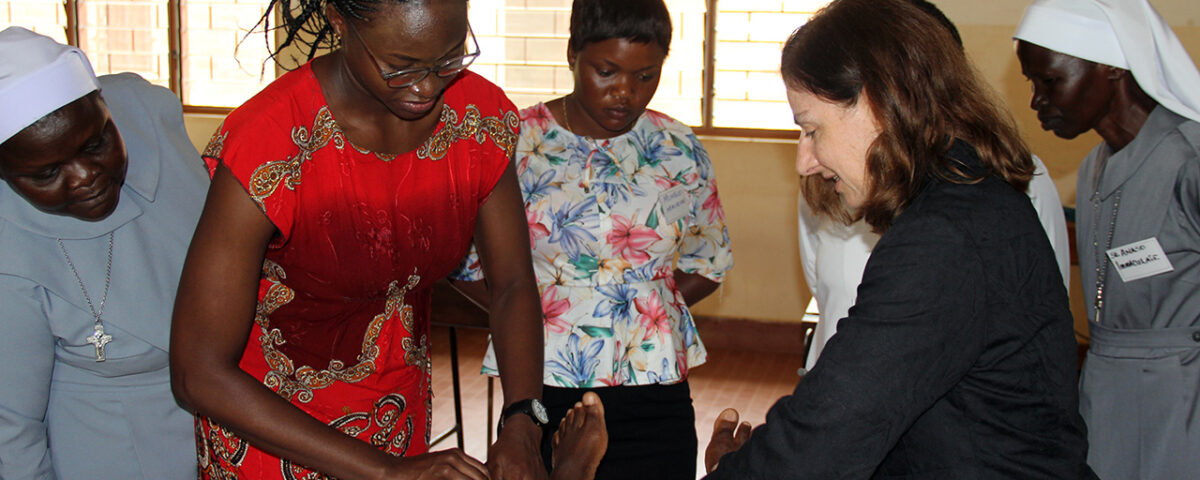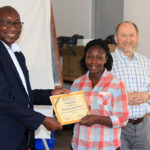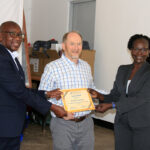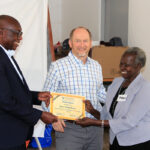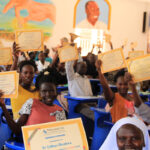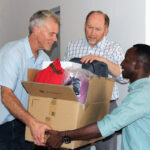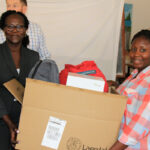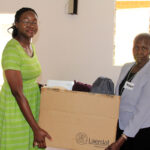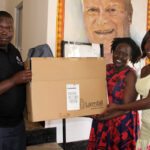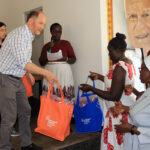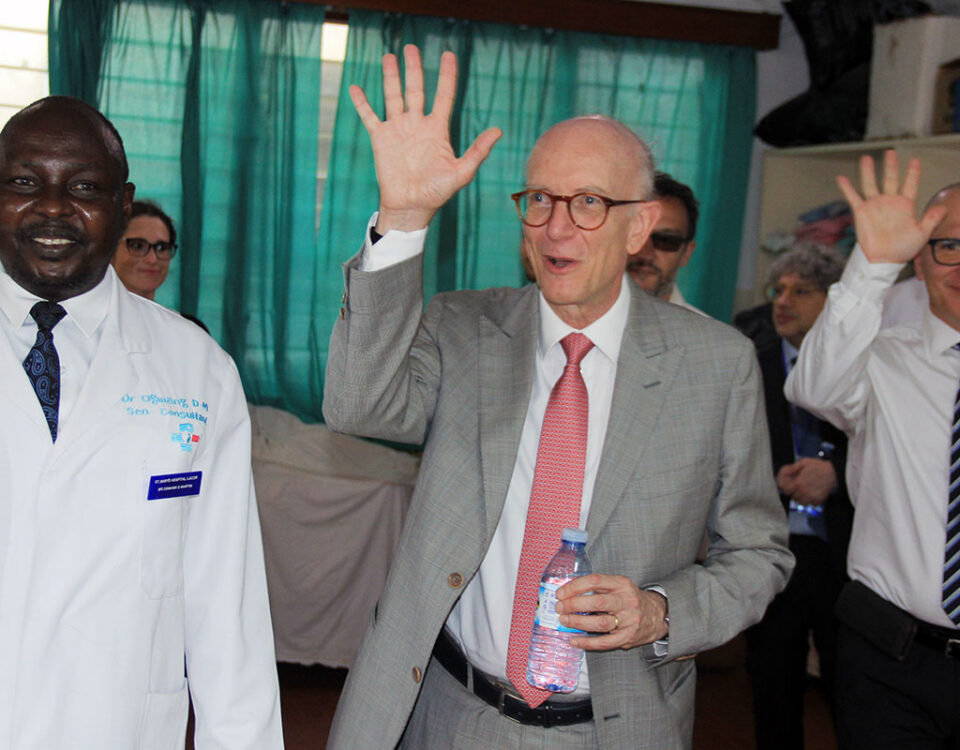St. Mary’s Hospital Lacor has joined hands with Maternal Life International (MLI), a non-profit organization in the United States in collaboration with the Uganda Catholic Medical Bureau (UCMB) to train health workers in improving emergency obstetrical and newborn care.
Under the Safe Passages program, MLI hopes to support Catholic health care systems in their commitment to provide life-affirming, evidence based obstetrical and perinatal care to women, families, and communities in Uganda. “Safe Passages means pregnancy and birth are free of death, free of serious injuries and free of harm. Safe Passages is something that we want for mothers throughout the world,” says Dr. George Mulcaire-Jones, Medical Director, MLI.
According to Dr. Emintone Odong, the Medical Director at Lacor Hospital, this program is a first of its kind. “It is a first of its kind in a sense that we have had international facilitators working together with local facilitators – our gynecologists and physicians and the training is mainly skill based; practicing basic life support for both the mother and the baby,” he says.
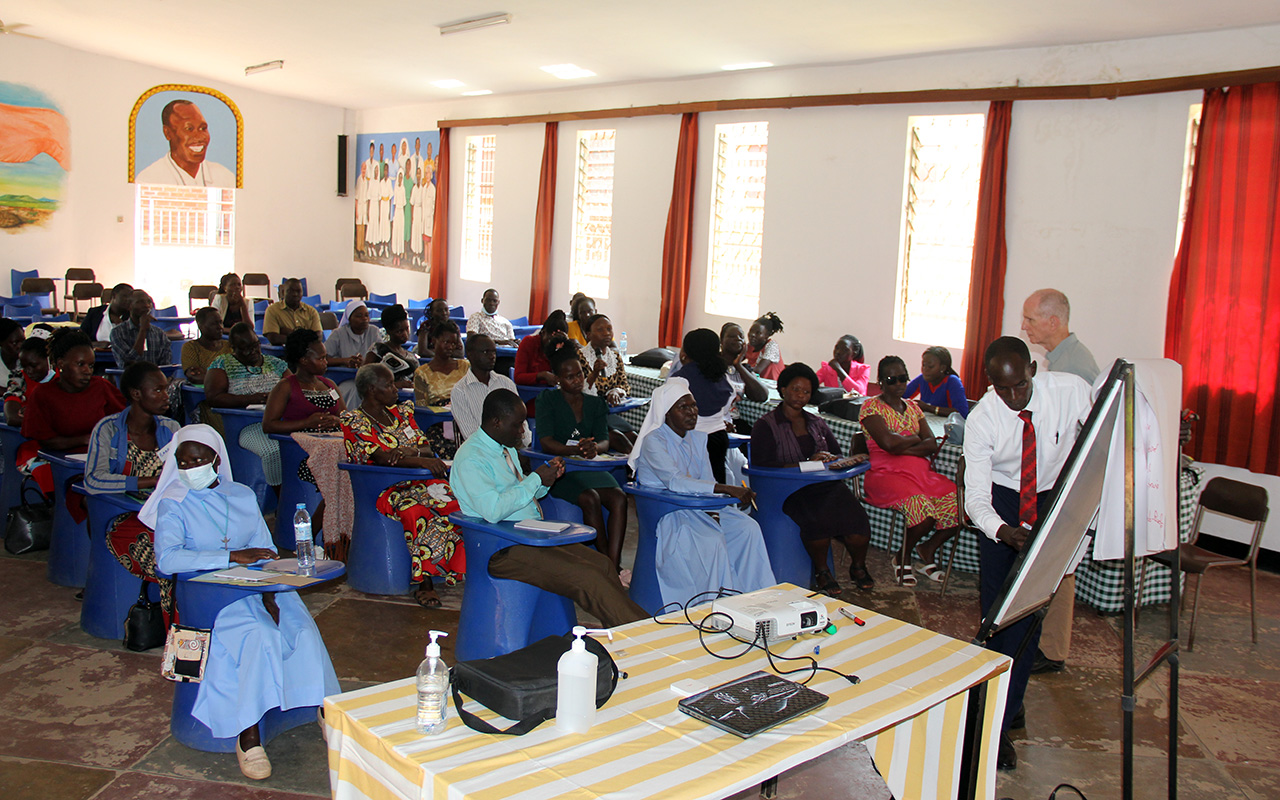
Dr. Sande Ojara (R) from Lacor Hospital takes notes during a testimony session
The five-day training which started on January 23rd at Lacor Hospital, brought in four doctors from the US, two from Maternal Life Uganda and four from Lacor to talk about modern technology and delivery. Ninety participants were in attendance from twenty-one Catholic health facilities.
“We like to work in places where cases of maternal and infant mortality or morbidity are extremely high – higher than the norm around the world and places in Africa have a higher maternal and infant mortality than other places in the world,” says Jeff James, the Executive Director MLI
Maternal Mortality Rate (MMR) in Uganda has consistently been one of the highest in the world over the years, recording 336 deaths per 100,000 live births, according to the Uganda Bureau of Statistics (UBOS). It is estimated that 1 in 49 women will die of a maternal complication related to pregnancy or delivery in Uganda and this training addressed the leading causes of maternal and perinatal deaths.
A study by Alobo Gasthony and others in 2022 attributed the high death rate to direct obstetric causes, contributing to 73.8% of maternal deaths; the most common being haemorrhage (42.7%), sepsis (24.0%), hypertensive disorders (18.7%) and complications of abortion (2.1%), whereas malaria (23.5%) and HIV/AIDS (20.6%) are the leading indirect causes.

Jeff James, Executive Director – MLI
In May 2022, the World Health Organization (WHO) said 16 women in Uganda die daily in the process of delivery. “If we can reduce that number to 15; thank the Lord and if we can get that down to zero; praise God,” says Jeff James. “If we can save one mother or one infant from this program then it is worth every bit of time, every bit of penny that has been invested in it.”
There’s huge excitement and optimism among the participants. Vicky Auma, an enrolled midwife from Kalongo Hospital said the training has taught her new things that she intend to immediately put to use. “I learnt about the three Rs when handling emergency – readiness, recognize the situation and respond timely to save life of the mother. So you’ll have to plan early enough, especially for mothers with high parity,” she says.
“For me the use of the shock index was my highlight,” says Immaculate Akello, a Medical Officer at Lacor. “The training is very productive because we have all the cadres on board which is very important because management of these cases requires a team approach but in most cases you find that it’s only the doctor with all the knowledge, so since all the team has been trained, we shall better manage the patients with or without the presence of doctors.”

Dr. George (R), the Director, Safe Passages leading a small break-out group
Dr. Sam Orach, the Executive Secretary at UCMB who was invited for the closing ceremony on Friday 27th January was full of gratitude and applauded the training method. “What I have learnt in management is that when training the lower cadres, the information has to reach the people at the top. Otherwise they will think the lower cadres don’t know what they are doing,” he says. “So continue upgrading and learn from anyone and anywhere you can find knowledge.”
The Maternal Life International Team also brought some medical equipment that were distributed to all the participating facilities in a bid to address some of the most prominent gaps in delivering quality maternal care. “We’ve brough with us Non-pneumatic Anti-Shock Garments which are used to stabilise a mother who has lost blood from Postpartum hemorrhage, we also brought a special kind of monitor to alert us through blood pressure to blood loss to acute hypertensive emergency,” says Dr. George
Other things the team brought included newborn resuscitation units and specialised simulation training that can be used for furthering Safe Passages training. This training was not only a technical training but also a clinical training in terms of communication and building team work as one person alone cannot save a mother’s life. So there were physicians, nurses, midwives and anesthetists working together.
Participants walked away with certificates and gifts for their health facilities at the end of the training.
“We’re very happy with how it went. I am so impressed by the midwives, physicians and nurses that attended and the work that they are doing,” Dr. George.
The Safe Passages program hopes to create an online community of participants to share knowledge and guidance in a collaborative effort by medical practitioners around the world. For third world countries like Uganda, it is the training and resources that the program delivers that make the difference.

